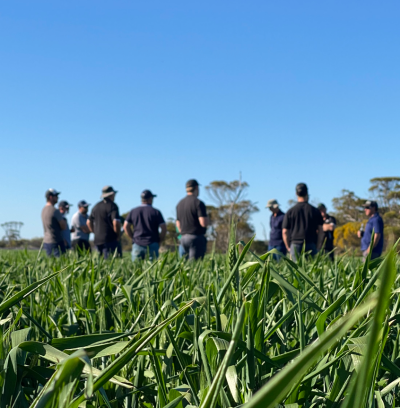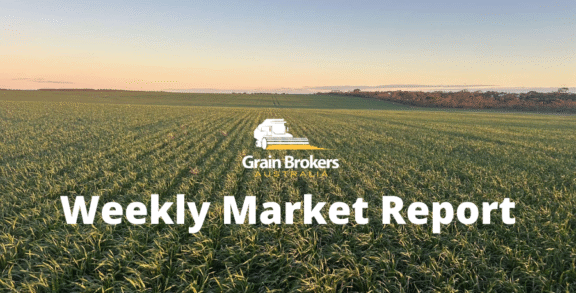
Former British Prime Minister Harold Wilson once quipped that “a week is a long time in politics”, and that was certainly the case in Argentina last week, with the country’s agro-export taxes suspended at the beginning of the week and then reinstated just two days later after the US chimed in with a currency swap deal.
Last Monday, President Javier Milei’s government announced that it would immediately slash export taxes on all grains, oilseeds and by-products to zero until October 31 in a bid to expedite export sales and secure a stream of much-needed US dollars to help stabilise the ailing currency.
This move follows the government’s policy shift in late July, when Milei unveiled significant cuts to export taxes on agricultural commodities aimed at revitalising Argentina’s struggling farm sector. That policy reduced export duties on soybeans from 33 per cent to 26 per cent, soybean meal and oil from 31 per cent to 24.5 per cent and corn, wheat, barley and sorghum from 12 per cent to 9.5 per cent. The taxes on sunflower products were also reduced, while the levies on minor crops, such as rice, peanuts, sugar, and cotton, were eliminated entirely.
Cutting export duties to zero means the government is temporarily foregoing a significant source of tax income in order to incentivise exports that will bring in US dollars. The decree affects soybeans, corn, wheat and their by-products, including biodiesel, and will remain in effect until the end of October, or until declared export sales reach US$7 billion.
A week earlier, the Central Bank of Argentina sold more than US$1.1 billion in a three-day period to defend the value of the peso after it reached the upper limit of the currency target bands. The government blamed the currency run on market fears that the opposition could perform well in the upcoming national legislative elections.
Argentina implemented a managed float currency regime in April of this year as part of its US$20 billion deal with the International Monetary Fund. Its currency was initially allowed to fluctuate within a range of 1,000–1,400 pesos to the US dollar, with the ceiling increasing, and the floor decreasing, by 1 per cent per month.
Milei has also faced several legislative defeats on public spending proposals in recent weeks, which have caused nervous investors to turn to the safety of US dollars and forced the central bank to dip into its dwindling foreign currency reserves.
Market participants seized upon the temporary tax reprieve with remarkable enthusiasm. No sooner had the announcement been made than China stepped up to the plate, reportedly booking as many as 20 panamax size cargoes of Argentine soybeans for fourth-quarter shipment, a window usually dominated by US-origin beans.
This is another blow for the embattled US farmer who has been shut out of the normally lucrative Chinese market following Trump’s trade war with Beijing. China is yet to purchase any new crop soybeans from the US, instead relying on South America to meet its requirements. China has been actively boosting inventories, with record imports in May, June, July and August seen as a hedge against potential fourth-quarter supply disruptions.
Then, late on Wednesday, the government restored the export taxes on grains, oilseeds and their derivatives after reportedly reaching its predetermined sales threshold of US$7 billion in less than three days. Breaching the sales cap triggered an automatic end to the tax holiday that had prompted the intense international buying activity.
The bulk of transactions were declared on September 24, with only 30,000 metric tonne of the 11.4 million metric tonne sales total registered in the preceding two days. Figures released by the Ministry of Agriculture revealed that soybean by-products led the charge with sales of 4.7MMT, followed by 2.7MMT of soybeans and 1.8MMT of bread wheat. The rapid quota exhaustion was in part driven by the tidal wave of Chinese buying, accounting for almost 50 per cent of the reported raw soybean trades.
While Argentina is the world’s biggest exporter of soybean meal and soybean oil, the brief trading frenzy has pushed Argentina’s declared whole soybean exports in the current marketing year to a seven-year high. According to government data, the country is on track to set a new soybean export record of 10.5MMT, surpassing the previous benchmark of 10.1MMT set in the 2018/19 season.
The tax reinstatement came just hours after US Treasury Secretary Scott Bessent turned to social media to express expectations that the zero per cent withholding tax advantage would end soon. This comment followed an earlier statement that the US and Argentina had held discussions around a US$20 billion currency swap line for the cash-strapped nation to support Milei’s faltering free-market overhaul ahead of challenging midterm legislative elections.
Bessent later confirmed that American Treasury officials stand prepared to acquire Argentine sovereign bonds and provide substantial emergency financing through the Exchange Stabilisation Fund. However, final terms reportedly remain under discussion following the bilateral summit with President Javier Milei at the United Nations General Assembly in New York on September 23.
South America’s second-largest economy also has a US$18 billion swap line in place with the People’s Bank of China, but only US$5 billion is currently active. The Trump administration has been a harsh critic of the China deal, and it could potentially be a condition of the US swap package.
According to a former Central Bank governor, Martin Redrado, Argentina’s authorities were insufficiently prepared for the market volatility that ensued in the week before last, but emergency measures and US financial support have helped them weather the storm. It was certainly a big test of the Central Bank’s resources and resolve.
Call your local Grain Brokers Australia representative on 1300 946 544 to discuss your grain marketing needs.





